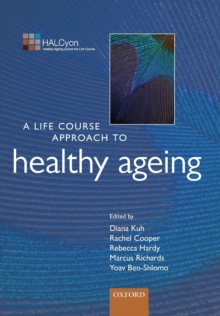
Family matters : Designing, analysing and understanding family based studies in life course epidemiology Paperback / softback
Edited by Deborah A. (Professor of Epidemiology, MRC Centre for Causal Analyses in Translational Epide Lawlor, Gita D. (Senior Research Scientist, MRC Unit for Lifelong Ageing and Health, Department of E Mishra
Part of the Life Course Approach to Adult Health series
Paperback / softback
Description
Family-based studies, including intergenerational, sibling, and twin studies, are increasingly being used to explore life course epidemiology.
However, there are issues relating to study design and the statistical analysis of family-based studies that are still not well understood, and comprehending the underlying assumptions of these studies and drawing the inferences from them can be complex.
This book provides the knowledge and skills required to design, analyse, and correctly interpret family-based studies.
It explains what these studies can tell us about life course epidemiology; provides practical guidance on how to set-up and maintain birth cohorts for completing family-based studies in life course epidemiology; describes how to undertake appropriate statistical analyses of family-based studies and correctly interpret results from these analyses; and provides examples that illustrate the ways in which family-based studies can enhance our understanding of life course epidemiology.
In addition, there is discussion of difficulties specific to setting up such studies in low- and middle-income countries, and issues relating to proxy informants, where parents provide information on children and vice versa, or siblings provide information about each other.
Examples of how family-based studies have been used in understanding the life course epidemiology of cardiovascular disease, mental health, and reproductive health illustrate the applicability of the research to these areas, but also more generally to the wider field of life course epidemiology.
Information
-
Out of stock
- Format:Paperback / softback
- Pages:352 pages, 32 line drawings, and a colour plate section
- Publisher:Oxford University Press
- Publication Date:02/04/2009
- Category:
- ISBN:9780199231034
Information
-
Out of stock
- Format:Paperback / softback
- Pages:352 pages, 32 line drawings, and a colour plate section
- Publisher:Oxford University Press
- Publication Date:02/04/2009
- Category:
- ISBN:9780199231034










